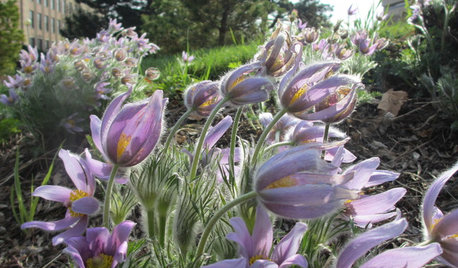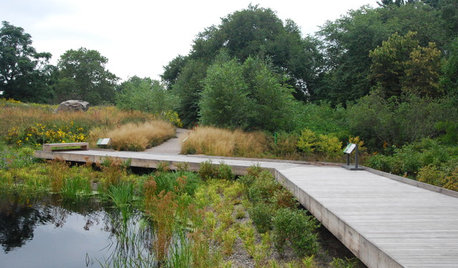Check out this neat plant key website I found!
brandon7 TN_zone7
16 years ago
Related Stories

REMODELING GUIDESFinish Your Remodel Right: 10 Tasks to Check Off
Nail down these key details to ensure that everything works properly and you’re all set for the future
Full Story
REMODELING GUIDESYou Won't Believe What These Homeowners Found in Their Walls
From the banal to the downright bizarre, these uncovered artifacts may get you wondering what may be hidden in your own home
Full Story
REMODELING GUIDESOne Guy Found a $175,000 Comic in His Wall. What Has Your Home Hidden?
Have you found a treasure, large or small, when remodeling your house? We want to see it!
Full Story
GARDENING GUIDES6 Plants That Beat Butterfly Bush for the Wildlife Draw
It's invasive, a nonnative and a poor insect magnet. Check out these better alternatives to butterfly bush in the garden
Full Story
FRONT YARD IDEAS12 Surprising Features Found in Front Yards
Fire, water, edibles and wildlife habitats are just a few of the elements you can consider adding to your entryway landscape
Full Story
ACCESSORIESFound Objects: The Most Natural Decor of All
They're beautiful, plentiful and best of all, free. See how to turn surprise finds into uniquely personal displays
Full Story
STANDARD MEASUREMENTSKey Measurements: Hallway Design Fundamentals
Whether narrow or wide, hallways can be enhanced with built-ins, artwork and distinctive lighting fixtures
Full Story
HOUSEKEEPING10 Things Neat Freaks Know to Be True
Do you err on the incredibly tidy side? Then you probably already live by these nuggets of neat wisdom
Full Story
GARDENING GUIDESLet's Weed Out 4 Native Plant Myths
Plant wisely for a garden that supports pollinators and requires less work
Full StorySponsored







peri__n_eal
brandon7 TN_zone7Original Author
Related Professionals
Foothill Ranch Landscape Architects & Landscape Designers · Walnut Landscape Architects & Landscape Designers · West Chester Landscape Architects & Landscape Designers · Hartford Landscape Contractors · Norwood Landscape Contractors · Metairie Landscape Contractors · Petaluma Landscape Contractors · Tacoma Landscape Contractors · North Aurora Landscape Contractors · Sun Valley Landscape Contractors · Alafaya Solar Energy Systems · Reedley Solar Energy Systems · Woodland Hills Solar Energy Systems · South Pasadena Roofing & Gutters · Wayne Roofing & Guttersbrandon7 TN_zone7Original Author
anntn6b
brandon7 TN_zone7Original Author